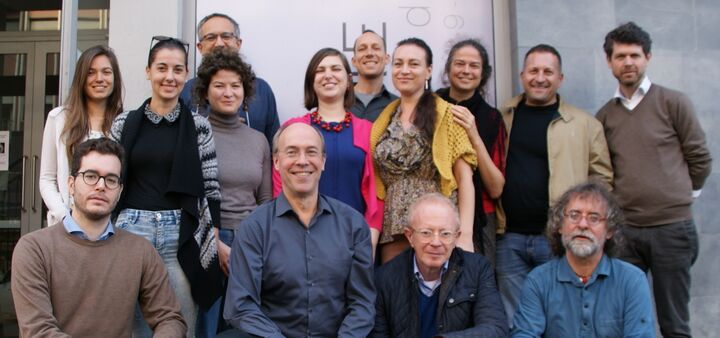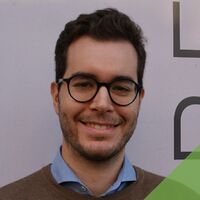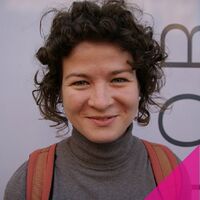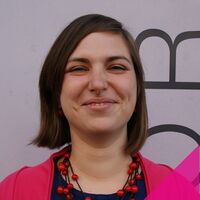Project Team LED2LEAP: Difference between revisions
Jump to navigation
Jump to search
No edit summary |
|||
| Line 34: | Line 34: | ||
'''Project Statement''' "The three years of the LED2LEAP project provide the possibility of exploring the challenges and specificities of community building and participatory design processes in an environment which has a history quite poor in civic engagement." | '''Project Statement''' "The three years of the LED2LEAP project provide the possibility of exploring the challenges and specificities of community building and participatory design processes in an environment which has a history quite poor in civic engagement." | ||
|- | |- | ||
|[[File:ALBERT.JPG|200px]]||'''Dr. Albert Fekete:''' Graduated Landscape Architect, Dean of the Faculty of Landscape Architecture and Urbanism Budapest, | |[[File:ALBERT.JPG|200px]]||'''Dr. Albert Fekete:''' Graduated Landscape Architect, Dean of the Faculty of Landscape Architecture and Urbanism Budapest, Hungarian University of Agriculture & Life Sciences. Researcher, teacher, guest lecturer in several european universities and active landscape designer with international design experiences, having since 2000 his own office (Lépték Terv Landscape Office) in Budapest and since 2007 the AB PLAN Design Office in Romania. Having more than 60 realized open space design projects related mostly to heritage site preservations in Hungary, Romania, Germany, Holland and Spain as well. Awarded among others in 14 design competitions and winner of several national and international professional recognitions, for instance the „Landscape Architect of the Year” prize in Hungary in 2012 and 2017, and the Europa Nostra Award in Research in 2014. | ||
'''Project Statement''' "The LED2Leap contributes to my professional development giving the possibility to work with students in an international context, dealing with issues in a specific topic of Landscape Architecture, enhancing the importance and adapting of global issues to local needs and expectations through community supported design projects." | '''Project Statement''' "The LED2Leap contributes to my professional development giving the possibility to work with students in an international context, dealing with issues in a specific topic of Landscape Architecture, enhancing the importance and adapting of global issues to local needs and expectations through community supported design projects." | ||
|- | |- | ||
| Line 49: | Line 49: | ||
'''Project Statement''' Zsófia believes in the role of education to encourage engagement, develop social sensitivity, empower for democratic self-organisation through methods of participatory design and critical design thinking. | '''Project Statement''' Zsófia believes in the role of education to encourage engagement, develop social sensitivity, empower for democratic self-organisation through methods of participatory design and critical design thinking. | ||
|- | |- | ||
|[[File:ESZTER.J.jpg|200px]]||'''Eszter Jakis, team member:''' Eszter Jákli is an MSc landscape architect, PhD candidate and associate lecturer at | |[[File:ESZTER.J.jpg|200px]]||'''Eszter Jakis, team member:''' Eszter Jákli is an MSc landscape architect, PhD candidate and associate lecturer at Hungarian University of Agriculture & Life Sciences, Faculty of Landscape Architecture and Urbanism. She always had an interest in education and educational places and as her master thesis project she developed an open space design of a school district in her hometown, receiving an award of the University. After graduation she developed an interest in community building and participatory planning, and was an awarded participant of an international design competition about recovering an abandoned village in the West Bohemian borderland in the Czech Republic. Following her passion about education and sustainability, she had the opportunity to spend almost one year in Spain where she could participate in environmental educational activities involving young people in both urban and rural environments. In her PhD thesis in progress she addresses the topic of environmental education, youth involvement and schoolyard design. | ||
'''Project Statement''' "The LED2LEAP project resonates a lot with my interests and I am very excited to be part of a research in action, and see how the Hungarian Living Lab evolves by time. I hope that we will create meaningful cooperation with schools and I am eager to see the different ways kids will be involved in the design processes and how they are going to take the future in their hands!" | '''Project Statement''' "The LED2LEAP project resonates a lot with my interests and I am very excited to be part of a research in action, and see how the Hungarian Living Lab evolves by time. I hope that we will create meaningful cooperation with schools and I am eager to see the different ways kids will be involved in the design processes and how they are going to take the future in their hands!" | ||
|- | |- | ||
| Line 58: | Line 58: | ||
'''Project Statement''' "I see the LED2LEAP Project taking the next step in Landscape Education for Democracy by extending opportunities for students to experience the principals, learn by doing. The Living Labs are a 'boots on the ground' effort to pull community together, enrich the learning experience and leave a lasting effect on a local landscape." | '''Project Statement''' "I see the LED2LEAP Project taking the next step in Landscape Education for Democracy by extending opportunities for students to experience the principals, learn by doing. The Living Labs are a 'boots on the ground' effort to pull community together, enrich the learning experience and leave a lasting effect on a local landscape." | ||
|- | |- | ||
|[[File:ANITA.JPG|200px]]|| '''Anita Reith, team member:''' Anita Reith is a freelancer landscape architect and a PhD student at | |[[File:ANITA.JPG|200px]]|| '''Anita Reith, team member:''' Anita Reith is a freelancer landscape architect and a PhD student at Hungarian University of Agriculture & Life Sciences. She met the idea of participatory planning first at Kristin Faurest’s lecture. Since that she started to explore more and more of the topic. With an international scholarship she had the chance to work in Canada for an architectural firm who is specialized in participatory planning and community-oriented design. Her Master thesis was based on the Canadian experience – a showcase of the Canadian process application in Hungary. Anita have received several recognitions – from the Hungarian Architectural Association, the Hungarian Urbanist Association and in 2016 Anita won the competition for the Junior Landscape Architect of the Year. Her doctoral research is also related to landscape democracy and the LED2LEAP project. | ||
'''Project Statement''' Her PhD research topic is public spaces in lovable and livable cities and how the participation process can change the stories that we have with our environment. The LED2LEAP Hungarian Living Lab will be more focused on the kids perception which is very important as they are the next generation citizens and users of our public spaces. | '''Project Statement''' Her PhD research topic is public spaces in lovable and livable cities and how the participation process can change the stories that we have with our environment. The LED2LEAP Hungarian Living Lab will be more focused on the kids perception which is very important as they are the next generation citizens and users of our public spaces. | ||
|- | |- | ||
Revision as of 17:11, 19 February 2021
Partnering Institutions
LE:NOTRE Institute (coordinating institution) an international foundation based in Wageningen, Netherlands
Nürtingen-Geislingen University - Nürtingen, Germany
Hungarian University of Agriculture & Life Sciences Faculty of Landscape Architecture - Budapest, Hungary
KulturActiv an NGO - Budapest, Hungary
University of Bologna Department of Architecture - Bologna, Italy
ETABETA an NGO Bologna, Italy
SLU Swedish University of Agricultural Sciences - Uppsala, Sweden



















